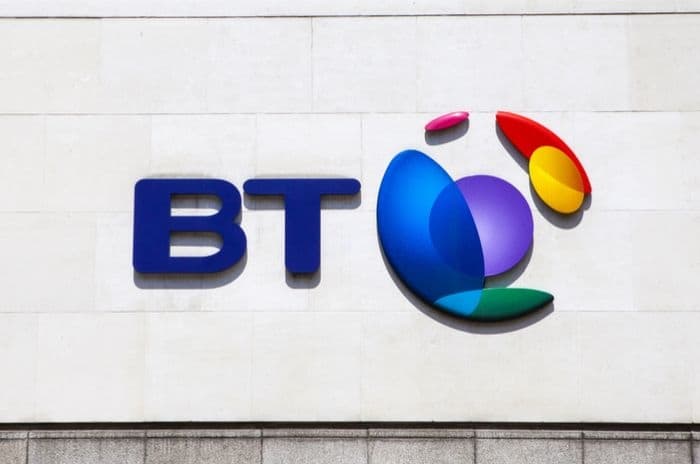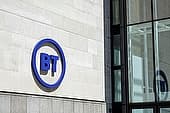Home > TV & Broadband > News > BT launch free service to block nuisance calls
BT launch free service to block nuisance calls
BT have launched a free service enabling their landline customers to redirect nuisance calls to a junk voicemail box, something which they claim will divert as many as 30 million nuisance calls a week.

This is the number of nuisance calls the provider recorded over seven days in December, with calls related to accident claims making up the vast majority at 12 million, and those related to PPI compensation coming a fairly distant second at two million.
As stressful as such calls can be for people, BT affirm they'll largely become a thing of the past with their Call Protect Service, which uses the bulk analysis of live data to enable customers to control the calls they receive.
However, this won't be available to mobile users, who for the most part will have to continue making do with the slightly less effective Telephone Preference Service (TPS).
What about mobiles?
Home phones that'll stop nuisance ringers
How much does caller display cost?
Are we putting enough heat on cold callers?
To be fair, the TPS is still an entirely worthwhile service, even if it simply adds your number to a register rather than physically blocks unwanted calls.
Once on this register, you essentially tell companies that they can't contact you unless you've given them prior permission. If they go ahead and phone you anyway, they can be handed a fine of up to £500,000 by the Information Commissioner's Office (ICO).
With such a system in place, it's estimated that unwanted calls - across landline and mobile networks - have been reduced by a third.
Admittedly, a 33% reduction isn't as far-reaching as some would prefer. Nonetheless, for those who have a mobile with Vodafone, there's now the benefit of having nuisance calls blocked at the network level.
According to Vodafone, since they introduced the relevant technology in September, they've reduced nuisance calls from the hundreds of thousands a day to "under a thousand".
How the Call Protect Service works
This represents considerable progress, so it's encouraging to see that BT are rolling out something similar with their Call Protect Service.
As BT explain, it works "by harnessing huge computing power to analyse large amounts of live data". Through such analyses, BT are able to "identify rogue numbers - typically those that make enormous numbers of calls - and to add them" to their blacklist.
Once added to the blacklist, these numbers will find that their calls to unsuspecting members of the public are diverted before ever getting through to anyone, with BT estimating that they'll block 15 million calls each week related to accident and PPI claims alone.
As the table below shows, these are the most common types of nuisance call, although computer scams and personal data requests also make it into the millions.
| Rank | Category | Weekly Quantity | Proportion |
|---|---|---|---|
| 1 | Accident claims | 12,288,022 | 39% |
| 2 | PPI | 2,903,946 | 9% |
| 3 | Computer scams | 2,673,665 | 9% |
| 4 | Personal data request scams | 1,434,890 | 5% |
| 5 | Silent calls | 987,989 | 3% |
| n/a | Miscellaneous/other | 10,917,635 | 35% |
Not only that, but for those numbers which fall out of Call Protect's scope, you're now able to set the service to divert specific categories of calls, such as withheld-number and international calls (perhaps not the best idea for people with relatives abroad).
You'll even be able to dial 1572 after receiving a nuisance call in order to flag up the nuisance caller to BT.
Using such notifications, BT will be better able to maintain and update their blacklist, which they're keen to emphasise is a proactive rather than reactive one. In other words, it will save many customers the hassle of reporting nuisance callers, although as our FAQ makes clear, there are plenty of other things individual customers can do by themselves to avoid cold callers.
The end of nuisance calls?
It's through such measures that BT expect their new service - first announced and trialled in February 2016 - to be a massive help to the 60% of people who find nuisance calls "stressful" (according to their own survey data).
Speaking of the advances which make it possible, the head of BT Consumer, John Petter, said, "Now, with our unique technology, we can identify and tackle huge numbers of those calls in the network and also give our customers control over the calls they receive".
Matthew Hancock - the Minister of State for Culture, Communications and Creative Industries - was similarly positive, saying, "We welcome BT's new service, which offers customers an additional level of protection, helping them to fight back against this ongoing harassment".
And while certain home phones such as the BT 8500 Advanced Call Blocker can already reduce nuisance calls at the customer level, BT have used the opportunity of the service's launch to call on other telecoms providers to follow suit with solutions at the network level.
Given that operators such as Vodafone and Talk Talk have already done this to varying degrees, and given that all the major suppliers are already signed up to Ofcom's Memorandum of Understanding on nuisance calls, it's highly likely that many will, if only to avoid being left behind.
And added to the Government's recent move to make directors personally liable for nuisance calling, everything is now coming together in such a way as to suggest that the days of frequent pest calls are seriously numbered.
That said, we'd be interested in hearing about your experiences with nuisance calls and call blockers. Have you already begun using BT's new service, or do you use similar services provided by other operators? How effective are they? Let us know via the comments section below.
Get insider tips and the latest offers in our newsletter

We are independent of all of the products and services we compare.

We order our comparison tables by price or feature and never by referral revenue.

We donate at least 5% of our profits to charity, and we aim to be climate positive.
Get insider tips and the latest offers in our newsletter




